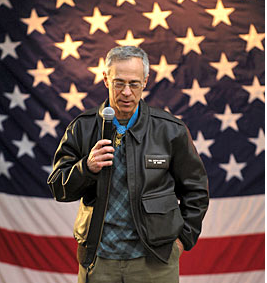Last week at the annual Wharton Leader Conference, I was presented with an interesting theory: Quiet leaders, oftentimes, make for better leaders. This goes against what we all know as the stereotypical leader — loud, strong-willed and and an all-around extravert. But Adam Grant, associate professor of management at the Wharton School of Business, claims quiet leaders are more effective motivators.
He told of his experience working with a call center whose employee turnover rate exceeded 400% annually. The call center’s mission was to contact university alumni to solicit donations. Employees sat for eight hours a day, reading from a dry script and accepting continuous hang-ups as a part of the job (for about every 100 calls, one person would donate). As part of Grant’s consulting job with the call center, he was faced with a monumental task: Figure out how to motivate employees.
He decided to bring in scholarship recipients so call center employees could see that their hard work has afforded individuals the opportunity for a higher education. First, he brought in an outspoken, enthusiastic student who was class president in high school and involved in various activities within his university. He had a prepared speech and, according to Grant, was a natural born public speaker.
Grant tracked the success rate of calls for the next four weeks and found that employees were making more calls and more donations were coming in. His plan had worked. But could it work better?
After one month, he brought in another scholarship recipient. But this one was quiet, shy and uneasy speaking to groups. What sounds like a awkward presentation that would have little to no effect on employee motivation turned out to be exactly the opposite. The impact was powerful and surprising. The number of calls made almost doubled and donations spiked to a level never before seen.
The conclusion: The introvert provided the most motivation. Grant stressed that extraverted leaders are so obsessed with being the center of attention that they very rarely inspire or motivate others, besides themselves, that is.
According to Grant, the following can help one lead more quietly:
- Lead by doing
- Outsource inspiration (Grant points to programs that John Deere, Volvo and other companies use)
- Embrace the other 80/20 rule (introduced by Jim Quigley, who will never speak more than 20% of the time in meetings he leads, claiming he learns not by speaking, but by listening)
Other resources on the topic:
- Analyzing Effective Leaders: Why Extraverts Are Not Always the Most Successful Bosses
- Personality Type in Leaders: What Works
- Why We Need Quiet Leaders
- Quiet




